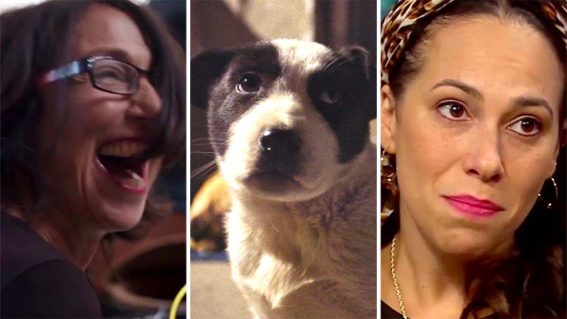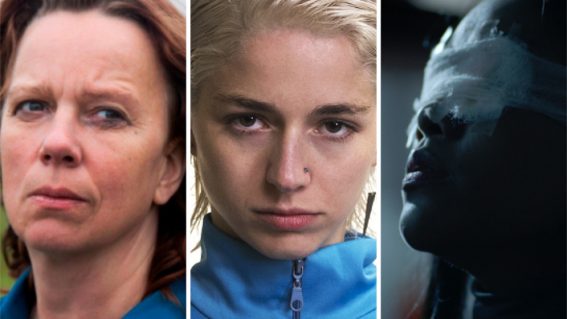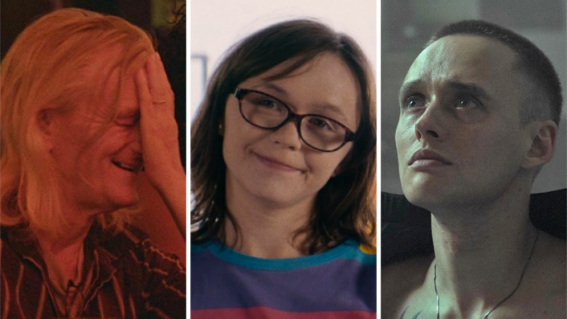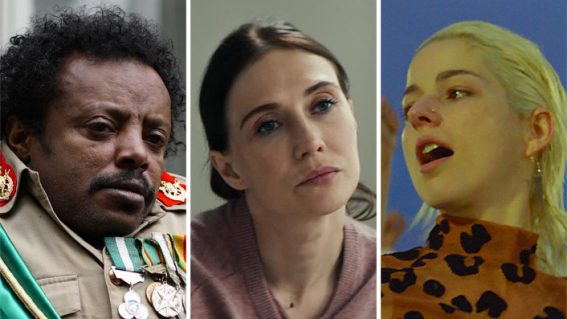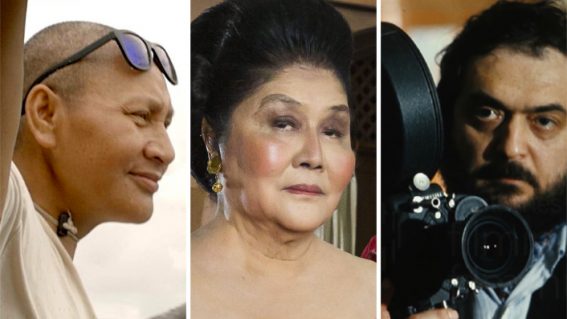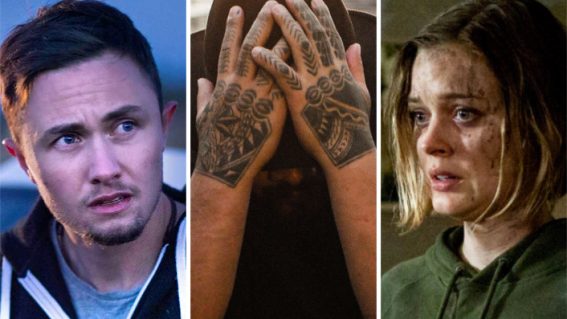NZIFF 2020 mini-reviews (S – Z)
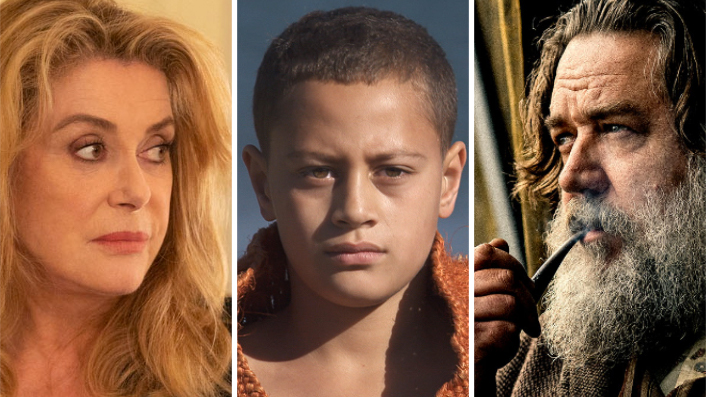
Our writers have been watching a ton of films playing as part of Whānau Mārama: New Zealand International Film Festival 2020.
This year’s festival, streaming online (and playing in select cinemas), from 24 July to 3 August features plenty of gems. Our team of keen viewers has gotten an early look at much of the programming, and we’re here to help make your picks for 2020. We’ve alphabetised our reviews here for your convenience.
All 2020 mini-reviews:
Latest reviews | A – D | E – J | K – M | N – R | S – Z
See also:
* All our Q&As with this year’s filmmakers
* Steve Newall’s early picks from the programme
* Liam Maguren’s early picks from the programme
Steelers: The World’s First Gay Rugby Club
A serviceable look at gay identity through the lens of rugby. Doesn’t quite do justice to the games themselves, opting for quick-cut montages with voice-over commentary in place of showing parts of the matches. Given how much these games mean to the players—especially the last match—it feels like a miscalculation. -LIAM MAGUREN
Suk Suk
Ray Yeung’s film about two gay men navigating romance, family, religion, social stigma and belonging during their twilight years is a deft, subtle, tender work. One sequence involving a dinner date is so gently observed it’s almost revelatory in its heart-filling simplicity.
AARON YAP
Gentle, touching, bittersweet, and acted to perfection. Manages to be so damn lovely when showing these two retirement-age men hooking up and quickly becoming an old married couple. However, it’s a pocket of happiness shrouded in a much larger forest of sorrow with constant cultural observations showing how homosexuality still isn’t really accepted in modern Hong Kong—especially for gay seniors.
LIAM MAGUREN
Tench
Belgian director Patrice Toye tackles the incredibly difficult subject of paedophilia with care and empathy, despite the discomfort. A necessarily tormented portrayal of self-censorship from newcomer Tijmen Govaerts (Jonathan) provides a different angle on the perpetrator, from the more regular and rigid “monster/predator” aspect. Outstanding too is the blithely heedless performance from neglected ten-year-old Elke (Julia Brown), a charming, damaged child determined to connect with him. Shot on the dilapidated edges of industrial suburbia beside a river during a torrid summer, this is a film that gets under the skin with its frustratingly grim portent.
SARAH VOON
As festival films go, Tench is about as Film Festival-y as it gets: a super slow, solemn, and sad Belgian drama about a young paedophile trying to change his ways. As such, watching it alone at home, rather than in a big dark room filled with chin-scratchy types, is a bit of an odd experience—and perhaps not one that many people will enjoy, per se. Yet director Patrice Toye’s thoughtful study of her subject is kind, nuanced, and compelling—and thankfully free of moral panic.
KATIE PARKER
To the Ends of the Earth
Can’t deny the filmmaking teamwork here between director Kirosawa Kiyoshi and lead Maeda Atsuko. They’ve crafted a sympathetically complex character in Yoko and the Japan-Uzbekistan clash of cultures delivers some worthwhile scenes (one involving a goat, another involving a cruddy carousel). But her slight plights and bland supporting characters had me oscillating in and out of boredom, a pain kicked further by a contrived “Breaking News” trope and one big cheese sandwich of an ending.
LIAM MAGUREN
True History of the Kelly Gang
Entertaining, shot through with a nihilistic punk energy, and featuring some stark photography of the Australian landscape, but man I wish Justin Kurzel would lighten up a bit. Kicks off with a kid watching his mum on the business end of some forcible fellatio and only gets more gruelling from there. Don’t get me wrong, it’s good… great, even, but at a certain point became a bit of a slog for me. “Oh come on!” I said to the screen at one point. There was still like twenty minutes to go.
TONY STAMP
Uniformly fantastic performances (apart from one local troubadour, sadly) propel this captivating period piece, a grimy, tense and satisfyingly unpolished take on the origins and mythology of the iconic Aussie outlaw. Beautifully stylised and lensed to match its riveting cast, The Nightingale this is not—but while imperfect, thankfully this tale of braggadocious lads doesn’t turn out to be Young Guns, either.
STEVE NEWALL
Anyone expecting anything resembling a classic Western retelling of the same ol’ Ned Kelly story, will be mightily befuddled by this anarchic, cross-dressing, twisted gothic folk tale. Peppered with talented hot-right-now offspring and musicians (Thomasin Harcourt-McKenzie, Earl Cave and Marlon Williams—I’m lookin’ at you), and pretty much devoid of fact-based narrative, it is none-the-less a super compelling visual mashup that vomits a blend of non-era accurate costume, art, theatre and visceral physical performance with grimy decadence across the screen. Fantastic.
SARAH VOON
From the blasted, eerily beautiful landscapes, to a cast including Thomasin McKenzie, Charlie Hunnam, Nicholas Hoult, and Russell Crowe; Justin Kurzel’s take on Peter Carey’s novel is a dystopic, anti-imperialist, postmodern fusion of folklore and fiction. Forget historical accuracy and embrace a magnetic fusion of Stalker and Barry Lyndon by way of Peaky Blinders and you’re in for a true Film Festival treat.
ADAM FRESCO
The Truth
Kore-eda’s French excursion is as charming as you might expect, and relentlessly watchable thanks to the two acting titans at its centre. It’s also amusing to see Ethan Hawke relegated to the sidelines as The American Spouse, in one scene literally sitting at the kids table. All the more room for Deneuve and Binoche to dominate the screen, elevating a low-key Parisian family drama into something more memorable.
TONY STAMP
Though it’s Shoplifters director Hirokazu Koreeda’s first non-Japanese production, The Truth feels as French as its leading ladies, and will no doubt delight many a francophile by uniting Catherine Deneuve and Juliette Binoche on cinema for the first time. The story of a tense mother-daughter reunion set against the French film industry, The Truth is wry and charming, if not exactly earth-shattering—and in spite of excellent performances left me slightly cold.
KATIE PARKER
Hirokazu Koreeda’s first non-Japanese film continues his examinations of the family unit, but with a remarkably authentic French feel to it all—at least to my Kiwi eyes. This story of a celebrated actor’s broken family healing itself is second-tier Koreeda, on a par with the likes of Like Father Like Son and After the Storm. It’s far from his best, but still a wonderful watch and its sad depiction of a film star in the twilight of their career makes this somewhat of an interesting distant cousin to Once Upon A Time In Hollywood.
DANIEL RUTLEDGE
The archetypal pour-yourself-a-red-wine-and-have-a-nice-French-time pic of NZIFF (unless you’re Ethan Hawke’s onscreen teetotaller), The Truth offers plenty of enjoyment, much of it thanks to Catherine Deneuve’s portrayal of a give-few-shits French acting legend. She’s the anchor of Hirokazu Kore-eda’s Paris-set follow-up to Palme d’Or winner Shoplifters, leading a splendidly watchable cast including an equally strong turn from Juliette Binoche, their mother-daughter relationship an ongoing emotional arm-wrestle. Chuckles abound in this family dramedy, not least of all from Deneuve’s often haughty rudeness, a performance drawing on her real-life legacy in an enjoyable, unchallenging watch.
STEVE NEWALL
Tupaia’s Endeavour
This is the conversation we should be having as a country when we talk about 250 years since the Endeavour arrived in Aotearoa. Cook is relegated to the narrative sidelines as the film explores Tupaia as a connector of cultures, and investigates what his under-known legacy tells us about our understanding of this country as a Pacific nation. It made me hopeful that we might be able to have these conversations about renegotiating colonial histories on a broader level; I don’t know how you could watch this and not feel motivated to do some more learning.
RACHEL ASHBY
Though it’s clearly made for television, there’s a banquet of mind food here that massively advanced my personal knowledge of New Zealand’s history. Also doubles as a great example of how oral history works on both an indigenous and tertiary level. You can’t help but get swept away by the nuggets of gold they found thanks to the guidance of ancestral knowledge.
LIAM MAGUREN
The Unknown Saint
Sporting a downright Coen-esque cast of deadpan characters and a constant sprinkling of bone-dry humour, this begins as a crime caper then morphs into something richer and more concerned with matters of faith. It’s also beautifully shot, perfectly proportioned frames full of eye-popping colours and the gaping void of the Moroccan desert.
TONY STAMP
Blundering thieves vs faith in the Moroccan desert. Loose, shaggy dog plotting, crisp location lensing and loping pace add to a bone-dry pleasure. Easily the funniest, freshest caper flick I’ve seen in ages. We need an Ahmed the Brain spinoff.
AARON YAP
Very silly and absolutely gorgeous, The Unknown Saint is a sweetly understated take on classic art-house comedy. Set amidst the sweeping desert landscape of South Morocco, this is the kind of movie you go to with your posh auntie and afterwards everybody says “oh well that was jolly good wasn’t it”.
AMELIA BERRY
Wendy
I had high hopes for this film being both a huge childhood Peter Pan nerd, and a massive fan of Beasts of the Southern Wild, the previous film directed by Benh Zeitlin. The visuals are lush and romantic, and the cast of child actors extremely compelling, but the story itself lacked a bit of cohesion and through-line. A lot of the plot seemed to rely on the audience already having an understanding of the Peter Pan story (perhaps fair enough), meaning that oftentimes the film felt like a series of vignettes strung together by slightly didactic narration. Where Beasts excelled in effortlessly showing the turbulence of childhood, Wendy felt a bit self-conscious. Still a beautiful film, but lacking some of the magic of its predecessor.
RACHEL ASHBY
Children’s tale meets arthouse in Beasts of the Southern Wild director Benh Zeitlin’s sumptuously shot, Southern US-set Peter Pan spin. The sexism of J.M. Barrie’s Wendy is jettisoned, an environmental theme is gorgeously evoked in “Mother”, and the cast of kids, cinematography, and soundtrack are great. A meandering, visually poetic evocation, in the style of Terrence Malick, it may be heartfelt, but ultimately is so abstract as to be obtuse. Maybe seeing it on a big screen would serve its bold ambitions better, but I struggled to stay engaged.
ADAM FRESCO
You Will Die at Twenty
No doubt, this film is beautiful to look at and there are some incredible sequences of sound and colour. However, the story itself lacks a lot, and I finished the film feeling a bit flat. Muzamil, the central character, is a passive agent in his own destiny, which becomes frustrating when he is given little room for growth in the narrative. When he finally gets a moment of agency, it feels pretty yuck and the scene lacks the required scrutiny befitting the action.
RACHEL ASHBY
Sparse sound, stoic cinematography, contemplative pace… They’re the ultimate film festival cliches but this sensitive slice of Sudanese cinema turns those cogs well. The test-of-faith drama curses the young lead with a very intriguing dissonance—the Quran’s teachings versus a drunkard’s film collection—but only lightly touches on the conflict when it should have indulged in them. In particular, one difficult-to-watch moment near the end deserved more examination than what was given.
LIAM MAGUREN
Yummy
Here’s an intensely juvenile zombie comedy that’s a somewhat refreshing throwback, but half of the jokes trigger eye-rolls instead of chuckles. Like the humour, the gore is very hit-and-miss, with some wonderfully inventive bits and a delightful segment of penis trauma, but also a lot of off-screen violence and bad CGI. The good stuff makes this worth a watch if you’re a zombie addict, but it’s very forgettable.
DANIEL RUTLEDGE
Director Lars Damoiseaux doesn’t breathe new life into the zombie genre, but does resurrect the splat-stick fun of Peter Jackson’s early comedy-horror delights. Turning an Eastern European plastic-surgery ward into a bad-taste bloodbath of body-parts, puke-fountains, and a severed zombie penis, this bad taste fun Belgian treat would be oh so sweet savoured “live” in a packed cinema of screamers and gigglers out for ghoulish, grisly and gag-filled gore.
ADAM FRESCO
All 2020 mini-reviews:
Latest reviews | A – D | E – J | K – M | N – R | S – Z

